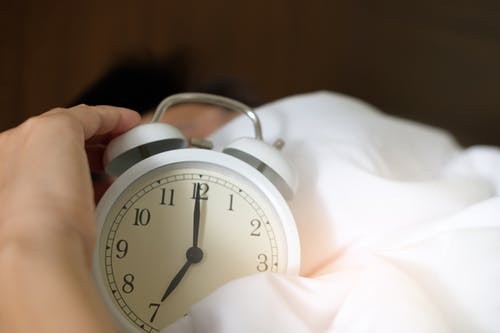Is Daylight Saving Time Bad For Your Health?

Daylight saving time is a practice commonly known to Americans. This is the practice of setting the time forward one hour from the standard time during summer months and back again during fall to have a better use of natural light. But there's a persistent question, does daylight saving time affects our health?
The short answer is yes. This practice has an effect to your health, particularly to your sleep cycle. But how exactly does it affect our sleep?
Dr. Fariha Abbasi-Feinberg, the director of sleep medicine at Millennium Physician Group in Fort Myres, Florida said that most people take advantage of daylight saving time by getting an extra hour of sleep. She also added that getting an extra hour of sleep is greatly beneficial. However, some people do not want to "waste" this extra one hour, so instead of getting a good night's rest, they use the extra hour to socialize, finish chores, and many more.
The fall-back transition tends to be gentler on the body than the spring-forward. Creating a disconnection between a person's body internal clock and their daily routine can disrupt their sleep habits and circadian rhythm.
However, study shows that it only takes a day to adjust in the change of time. It also varies from person to person. During the transition period, if a person is getting 8 or 9 hours of sleep he might feel refreshed but if a person is sleep deprived or have sleep only for 6 hours he might be in trouble. In addition, the circadian rhythm of a person is generally influenced by environment, behavior, and medications.
Dr. Erik Herzog, a professor of biology and neuroscience at Washington University in St. Louis and the president of the Society for Research on Biological Rhythms, said that the more difficult things happen during spring as they spring forward for daylight saving time. This means that people tend to wake up earlier instead of an hour later.
He added that for late risers who struggle to wake up early in the morning has sort of chronic effects that will persist in the time of daylight saving time. This change of time is associated to a higher risk of heart attack.
WebMd supports this by saying that losing an hour during spring is more difficult to adjust than gaining an hour during fall season. They metaphorically compared it to an airplane that when you travel to the east you lose time. This means that there might be difficulty in falling asleep. On the other hand, when you travel to the west, you fall asleep easily and might have a hardtime to wake up in the morning.
In an article published in the Healthline, rolling the clock back could somehow affect the risks of traffic accidents. Scientists reviewed the research on traffics following the time change in autumn. However, they found conflicting results. One study suggests that it increases the number of injuries and accidents, but the other studies have no conclusive results.
Meanwhile, there are also studies in the review that posits that pedestrians were more likely to be injured than a motorist after the return of the standard time. This means, that pedestrians spend more time in the evening which gets darker an hour earlier after the return of the standard time.
Read more: How Sleep Is Affected by Time Changes and How Daylight Saving Time Can Affect Your Sleep and Your Health
Subscribe to Latin Post!
Sign up for our free newsletter for the Latest coverage!

















